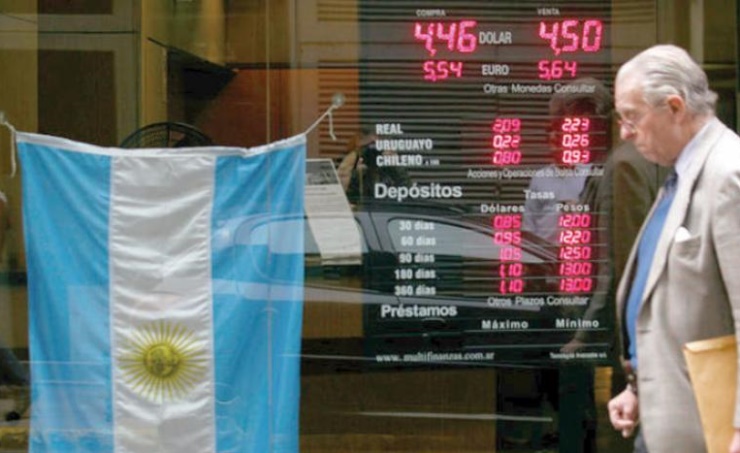It is expected that Argentina’s inflation rate for the month of December will sharply increase to 28%, reaching its highest level since the early 1990s. This jump can be attributed to the significant devaluation of the peso currency that occurred last month under the leadership of libertarian President Javier Milei.
The middle forecast from a group of 20 local and international analysts surveyed by Reuters highlights the difficulty that the South American grains powerhouse is facing, as it is expected to experience an annual inflation rate exceeding 200% for the year, one of the highest rates globally.
Milei, a newcomer to politics, assumed power in December amid voter frustration towards the established political class. In an attempt to address the country’s ongoing economic crisis, Milei initiated a significant reduction of over 50% in the value of the peso, which had been artificially strong. However, this devaluation is currently limited by strict capital controls.
This resulted in a surge of accumulated inflation, as prices for food, clothing, and transportation quickly adapted following the devaluation. The devaluation was intended to reduce the significant difference between the official exchange rate and the rates commonly used by the public.
Eugenio Mari, the chief economist of the Libertad y Progreso Foundation, stated that the acceleration was clearly driven by the postponement of artificially manipulated price increases.
The primary factor that caused the prices of goods, particularly food and beverages, to rise by approximately 35% each month was the wholesale exchange rate.
Analysts’ estimates for the month varied between 16.9% and a maximum of 31.5%. The official data will be published by INDEC, the government’s statistics agency, on Thursday.
Argentina is currently experiencing its worst economic crisis in twenty years, largely due to rampant inflation. The inflation has been steadily increasing in recent years as a result of deep fiscal deficits, low confidence in the peso, and the government’s practice of printing money to finance its operations.
The country’s foreign currency reserves are significantly negative, with a large portion of the population living in poverty. Additionally, there are imminent substantial debt payments that need to be addressed, and the government is urgently working on restructuring a $44 billion loan program with the International Monetary Fund.
Milei, who has issued a caution regarding the possibility of hyperinflation in the absence of his proposed measures for reducing spending, has acknowledged that inflation is anticipated to reach approximately 30% in December. However, he believes it could have been even more severe.
According to economist Lucio Garay Mendez from consulting firm EcoGo, it is predicted that inflation in December will reach 29.1% and the annual rate will be approximately 222%. It is also anticipated that there will be further price hikes throughout this year.
He mentioned that in 2024, there will be additional rises, particularly in prices that are regulated, which were the most delayed during the previous administration. These prices include prepaid insurance, fuel, public transportation, electricity, and gas tariffs
Reuters


















